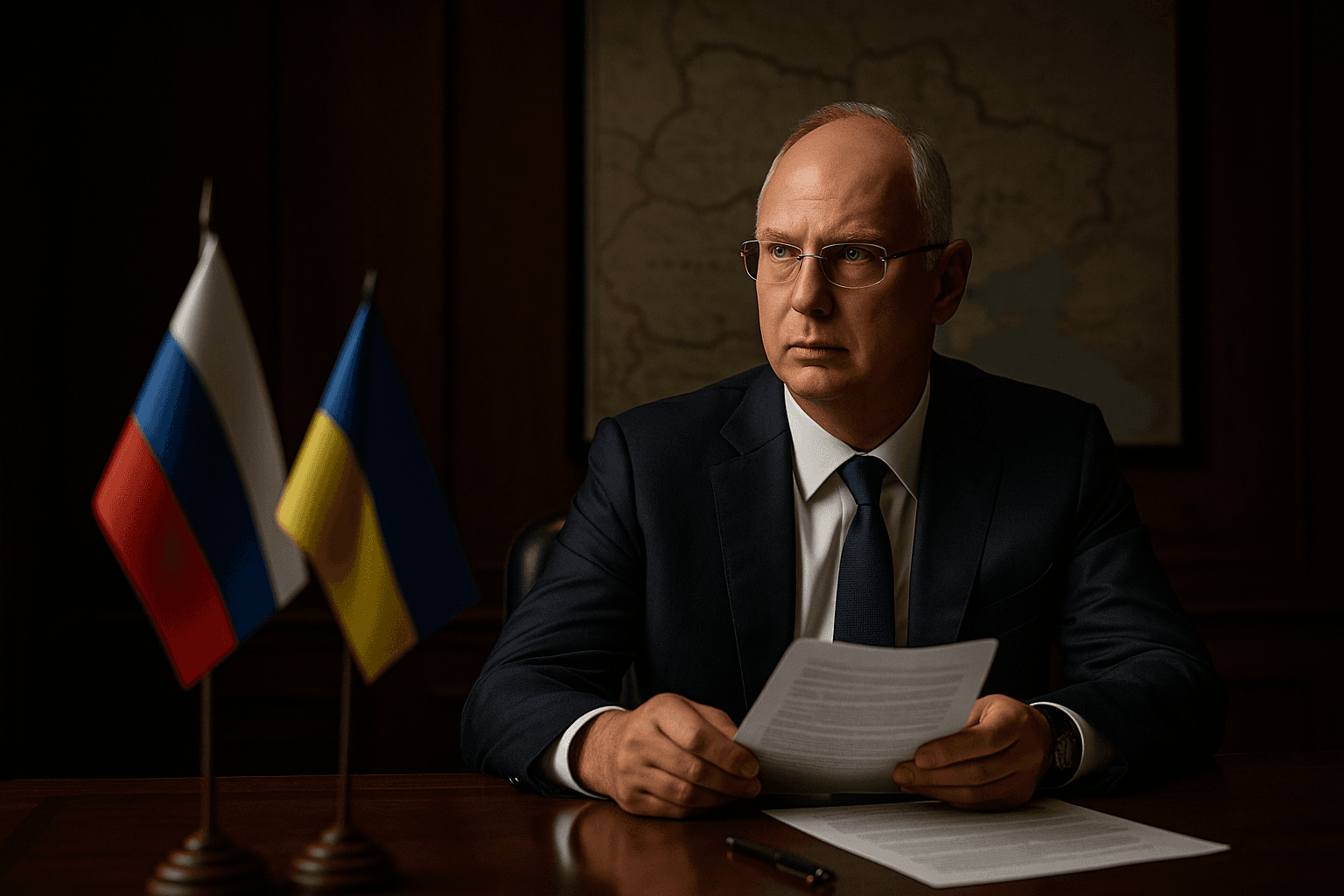Kremlin Envoy Kirill Dmitriev Shapes Controversial Ukraine Peace Proposal
An Associated Press profile published November 25, 2025 traced Kirill Dmitriev’s ascent from finance to an influential Kremlin interlocutor and reported his role in drafting a new peace proposal for Ukraine. His lack of diplomatic training, sanctions listing, and close ties to Russia’s sovereign wealth apparatus have prompted Western concern and complicated the prospects for a viable settlement.
The Associated Press profile published November 25, 2025 outlined how Kirill Dmitriev, long known for his work in international finance, has emerged as a central and controversial figure in efforts to shape a new proposal for ending Russia’s war in Ukraine. Reporters described Dmitriev’s transition from investment banker to a Kremlin connected intermediary who has used business networks and back channel contacts to insert himself into dealings that have traditionally been handled by career diplomats.
Dmitriev’s background in the private sector and his long association with Russia’s sovereign wealth apparatus gave him unconventional access to political and commercial elites both inside Russia and abroad. Those ties were cited as a source of the leverage that allowed him to become a go between for Kremlin officials and foreign interlocutors. At the same time Western governments have placed Dmitriev on sanctions lists, a reality that limited his ability to move freely across international financial and political lanes and that added an extra layer of controversy to his new role.
The profile emphasized that Dmitriev has no formal diplomatic training. Analysts and diplomats in Western capitals had warned that his emergence as a drafter of peace terms blurred the line between official state negotiators and private intermediaries. That ambiguity raised questions about transparency, legal accountability, and the institutional checks that typically govern ceasefire and settlement negotiations under international law.
Western concerns centered on how Dmitriev’s involvement could affect the reception and implementation of any proposal. Sanctions, financial entanglements, and a reputation for operating through informal channels risked undermining the credibility of a settlement among Kyiv’s Western partners. For Ukraine the challenge was acute. Any plan seen as emanating from a Kremlin linked intermediary rather than from recognized diplomatic processes would face political resistance inside Kyiv and among its supporters abroad.

Beyond immediate politics, Dmitriev’s profile highlighted broader dilemmas around post conflict reconstruction and legal responsibility. Who would oversee verification, who would hold parties to account for wartime conduct, and how frozen Russian assets might be used for reconstruction were all likely to become focal points if a proposal advanced. The presence of a figure intimately tied to Russia’s financial interests complicated proposals that might rely on international mechanisms to underpin rebuilding and compensation frameworks.
The AP account underscored how modern conflict diplomacy can be shaped by actors who move between business and state roles, especially in capitals where governance and commerce are closely intertwined. For Western policymakers the question now was whether to engage with the substance of any proposal while insisting on conventional diplomatic safeguards, or to reject terms born outside formal channels on principle.
As attention turned to the text of the reported Dmitriev drafted proposal and to how Moscow would present it to Kyiv and partners, diplomats and legal experts said the debate over process and legitimacy would be as decisive as any discussion of specific territorial or security arrangements. The interplay between personalities, money, and power had become a central feature of a conflict that will test the limits of international law and the capacity of global institutions to broker lasting peace.


